BY DASHNOR KALOÇI
Part Two
Memorie.al / The events in Kosovo in the spring of 1981, which began in early March with the protests and demonstrations of the student youth and then of the people of Kosovo, who rose up to demand their legitimate freedoms and rights, just like all other peoples and ethnic groups then located in the Socialist Federal Republic of Yugoslavia, as is already known, met with a harsh reaction from official Belgrade. The high leadership of Serbia, on which the Socialist Autonomous Province of Kosovo depended at the time, sent tanks there and suppressed those student protests, not only with police forces but also by deploying the army and tanks on the streets and squares of Prishtina and other cities where those peaceful protests took place, where during all those days (March 11 – April 11, 1981), there were a total of 12 victims.
These events, which became front-page news in all world media, also had a major reaction from official Tirana, where the leader of Communist Albania himself, Enver Hoxha, was maximally engaged in defending the cause of Kosovo and the fundamental rights and freedoms of Kosovars, who lived in their ancestral lands, within the territory of the Federal Republic of Yugoslavia.
The above and how those events unfolded and what outcome they had are already well known, but the thing that has remained a great enigma is: did official Tirana know what was happening in Kosovo, (as those protest demonstrations did not erupt in one day, without some prior organization) and why did it not raise its voice before they occurred?
If we make a retrospective and return to the period before the start of those protests, focusing on the last three to four months (November 1980 – February 1981), we will see that the relations between official Tirana and Belgrade were not only not strained at all but were greatly increasing towards normality.
This originated in 1968, when after the military aggression of the Soviet Union against Czechoslovakia, Josip Broz Tito publicly declared that in case of an invasion by the Warsaw Pact troops led by the Soviets to occupy Albania, Yugoslavia would close the borders and would not allow such a thing.
This statement by Marshal Tito seemed to soothe the “blood” with official Tirana, and from that time until March 1981, there was an extremely friendly climate and cooperation between Albania and Yugoslavia in several fields, where, besides economic relations and the exchange of goods through import-exports, those in art, culture, sports, etc., also significantly increased.
In this context, there were many exchanges of delegations, artistic groups, sports teams, professors from Tirana giving lectures at the universities of Prishtina, as well as visitors and tourists traveling between the two countries, which had not happened since the end of 1948, when Enver Hoxha broke off relations with Tito’s Yugoslavia, siding with Stalin and official Moscow.
As we emphasized a little earlier, these friendly reports and official relations between Tirana and Tito’s Yugoslavia continued quite calmly and without any problem until March 1981. In fact, in the first days of March 1981, the feature film, “When Spring is Late,” (a “Kosova-Film” production), which was based on the motives of the diary of Fadil Hoxha, one of the main political leaders of Kosovo since 1943, was being screened in the cinemas of Tirana and the city of Durrës, etc.
According to the State Security documents sent to Enver Hoxha (which we will see in this article), Fadil Hoxha had been standing by Josip Broz Tito’s bedside when he died at the Ljubljana hospital in Slovenia about a year earlier (May 1980). Therefore, based on this panorama of the development of events at that time, at first glance, it seems that official Tirana and the main leader of the PLA (Party of Labour of Albania) himself, Enver Hoxha, had no information about what was “brewing” in Kosovo, because otherwise, they would have raised their voice (as they did and acted afterwards), or he would have written in his political diary, just as he wrote, took notes, and made analyses for every conflict that happened anywhere in the world, such as in the Middle East, etc., about which he even wrote books!
However, it seems that this was not the case, as official Tirana and Enver Hoxha not only had knowledge of what was “brewing” in Kosovo but they also had very detailed knowledge and information about what was happening in the Socialist Autonomous Province of Kosovo and throughout Yugoslavia at that time.
The 3rd Directorate of State Security, which was Political Intelligence and attached to the premises and structures of the Ministry of Foreign Affairs in Tirana, through its director Perlat Çaushi (a former intelligence officer at the Albanian embassy in Belgrade in the ’70s, camouflaged as the first secretary of that embassy), informed his superiors and the high leadership of the PLA about everything that was happening in Kosovo and the Yugoslav Federation.
But Enver Hoxha did not raise his voice about the Kosovo issue, or more precisely about what was fermenting there, (for which he had detailed information), which would in a way “burn the cards in Belgrade’s hand,” because Enver was not interested in Kosovo being declared a republic, even within the Yugoslav Federation, because in a way there would be two Albanian states in the Balkans, and Kosovo would take the main attention and role in the international arena, completely eclipsing Enver Hoxha’s Albania!
Without delving into analyses about this, everything is summarized in one point: how much did Enver Hoxha truly love Kosovo and the Kosovars? In connection with this, the fact is known that from the end of the ’50s until the collapse of the communist regime in the early ’90s, hundreds and hundreds of Kosovars, forced by Belgrade’s oppressive and discriminatory policy against the people of Kosovo, abandoned their homes and came to Albania, where most of them ended up in the internment camps and prisons of the communist regime of Enver Hoxha and his successor, Ramiz Alia, being accused as UDB (Yugoslav Secret Police) agents.
The above remains a subject of analysis for scholars and historians, while in this article, we are publishing some secret archival documents extracted from the Archives of the Ministry of Internal Affairs (now declassified and part of the fund of the Authority for Information on Former State Security Files), which are published for the first time with their respective facsimiles by Memorie.al.
Continued from the previous issue
REPORT – INFORMATION OF THE DIRECTOR OF THE POLITICAL INTELLIGENCE DIRECTORATE, PERLAT ÇAUSHI, REGARDING THE POLITICAL AND SOCIAL SITUATION IN KOSOVO AND YUGOSLAVIA IN THE YEARS 1980-1981
INFORMATION
PEOPLE’S SOCIALIST REPUBLIC OF ALBANIA SECRET
MINISTRY OF INTERNAL AFFAIRS Copy No. 1
THIRD DIRECTORATE Tirana, 10.X.1982
Information
No. 1820, dated 16.12.1980;
“On November 25, 1980, 33 teachers were arrested in several villages of Gjakova and Rahovec for anti-state activity.
The UDB has organized a secret guard service, as it has data that slogans will be written…!
A material discussing ‘Brotherhood and Unity’ has been distributed and studied in the organizations of the LCY (League of Communists of Yugoslavia).
This is being done because of national contradictions and the fear that the Yugoslavs have of their deepening in Kosovo, where disagreements are expected to erupt…!
Kosovar youth is healthy and has pronounced patriotic sentiments.
Some young people in Kosovo publish an illegal newspaper titled “Lirija” (Freedom), through which they demand that the people of Kosovo have more rights.”
Information No. 1968, dated 31.12.1980;
“As a result of a sudden control carried out by UDB organs in the homes of teachers of the Pedagogical School of Gjakova, 15 people were arrested because materials of the PLA were found in their possession. These measures have electrified the situation in Gjakova…!
We in Kosovo do not agree with the excessive actions of some who demonstratively demand unification today. Time will do its thing. We were burned with these slogans in 1968, and again a few months ago, several people were sentenced…!
In Kosovo, the broadcasts given for the works of Comrade Enver, ‘Notes on China,’ ‘With Stalin,’ and ‘The Khrushchevites’ – memoirs, which have clarified the stance of the PLA towards the issue of Kosovo and other Albanian areas in Yugoslavia, have been closely monitored…!
My friends and I gather every night and listen to Radio-Tirana, read the works of Comrade Enver, and talk about Albania. There are many like us at the University.
Students, in general, are patriots; they love Albania and Comrade Enver…! Serbs have done us a lot of bad things, so we are enemies with them to the death.
We can’t wait until we unite with Albania. It is true that Kosovo has some degeneracy, but that way of life was served to us. May that day come when we unite, and we will burn everything with fire, and we will live as you live here in Albania…!
The economic life in Kosovo is characterized by chaos; purchasing power is at the lowest levels of recent years; prices are constantly rising…!
Today, the policy of Čubrilović regarding Albanians in Yugoslavia, who have been artificially divided into different republics, essentially continues.”
Information No. 78, dated 19.1.1981;
“On December 19 and 20, 1980, UDB organs conducted thorough checks in all student dormitories of the University of Prishtina to find the authors of the illegal newspaper “Lajmëtari i Lirisë” (The Herald of Freedom) and those who read and distribute this newspaper, as well as PLA materials…!
Currently, the policy of Čubrilović and Cvijić is being implemented in Yugoslavia. This is the reason why the Albanians have been divided into pieces, in such a way as not to form a majority, because it would be dangerous for the Slavs…!
Our goal has been and will remain, unification with Mother Albania, because we are also an inseparable part of its body. We have many new things here, but we are still silent. During the November holidays in Kosovo, slogans were written on the walls, demanding that November 28 and 29 be declared an official holiday there as well…!
Fourth-year Metallurgy students in Mitrovica demonstratively did not attend the lectures given in Serbian and demanded that the subjects be taught in the Albanian language.”
Information No. 178, dated 5.2.1981;
“All the UDB measures are not having the desired effect, but the opposite. The gap between the leading power figures and the people, between Serbs and Albanians, is deepening…!
Students and teachers have been arrested at the ‘Normal’ school in Gjakova and Deçan, because during surprise checks, they were found with Comrade Enver’s works ‘Eurocommunism is Anti-Communism’ and ‘The Khrushchevites’ – Memoirs…!
The singer………. was arrested because she refused to sing songs about Tito. She told the UDB that she would not sing songs for the renegade of her people…!
Literature from our country circulates in Kosovo, and there are ‘underground libraries’ there. Students speak with phrases such as; ‘We are ready to shake Kosovo,’ ‘Our eyes are looking over there,’ etc.”
Information No. 254, dated 20.2.1981;
“National contradictions in Kosovo are deepening…! The opposition made to the Serbs in Kosovo is also supported by the Croats and Slovenes, who say: ‘Let Kosovo start first; we are waiting for that, and then we will continue our path, to break away from the Federation and have nothing to do with the Serbs.’”
Information No. 359, dated 3.3.1981;
“In the internal bulletin published in Yugoslavia for the cadres of the League of Communists of Yugoslavia and those with functions in power, the latest issue also wrote about Albania, stating: ‘Albania has territorial claims towards Yugoslavia.
This is the reason why Albania tries to strengthen relations more, especially with Kosovo and the Regions, to increase its influence on the Albanian population.’
The Ministry of Foreign Affairs in Belgrade, with special personnel, is carefully studying all the documentation of Albanian-Yugoslav relations, from the beginning of the century until now.
This is not a coincidence, if we consider that behind the scenes, all political groups, especially the nationalist ones, are working and preparing for future events…!
The Albanian problem in Yugoslavia, the more time passes, the more important it will become for the Federation, because the other minorities do not have weight.
The Albanian problem is the most important for the Federation, as they are a nation and have nothing to do with the Slavs. But the aspiration of the Albanians to unite with the mother nation is becoming more and more real.
They see the injustice that history has done to them; which time must inevitably correct. The solution to this must be given by the barrel of a gun. We are aware of this and are preparing for the appointed moment…!
Patriotic people in Kosovo, in the form of groups, organize continuous aid to families who have members in prison for anti-Yugoslav political motives. This aid is given in money and in care for other problems they have.”
NOTE:
- The 10 and 15-day information reports with various problems amount to about 160 pages. The enemy Feçor Shehu ordered on 18.11.1981, that they should no longer be produced, but that rapid information on events, according to issues, be made for the comrades above.
He does this immediately after the 8th Congress of the PLA, although the previous data were just as important, if not more so.
- We believe that the retention of this data, without passing it on to the Party, was done with hostile intentions. / Memorie.al
DIRECTOR OF THE III-RD DIRECTORATE
PERLAT ÇAUSHI




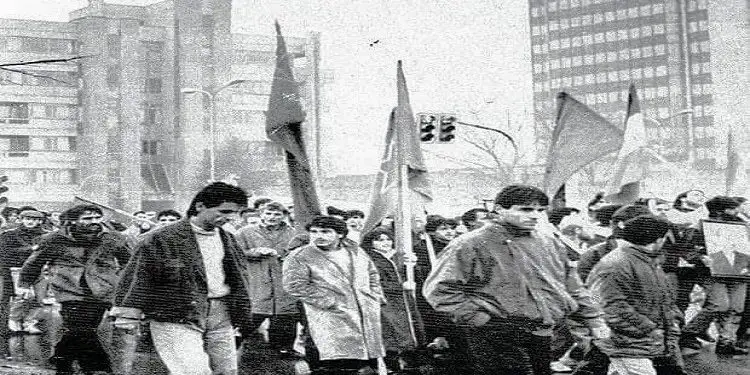
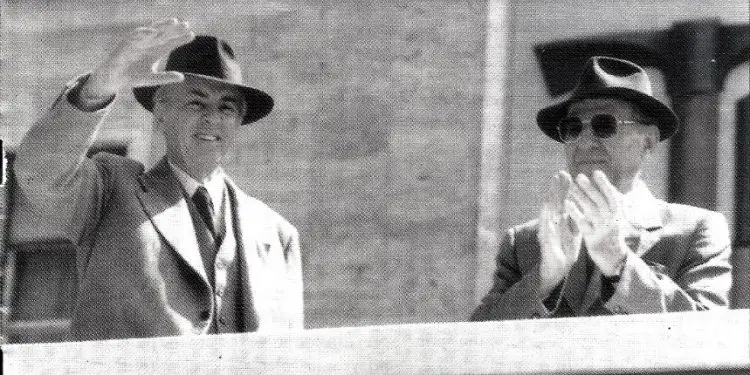
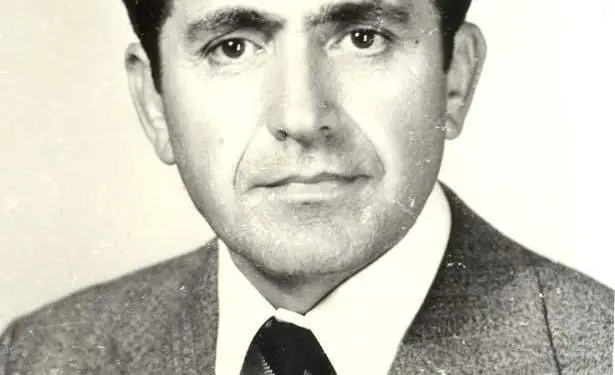
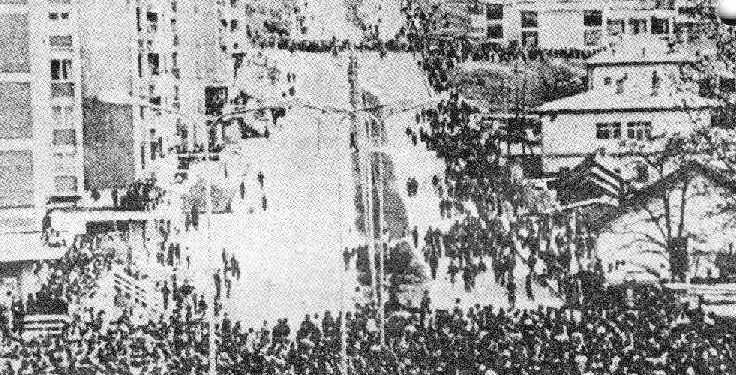
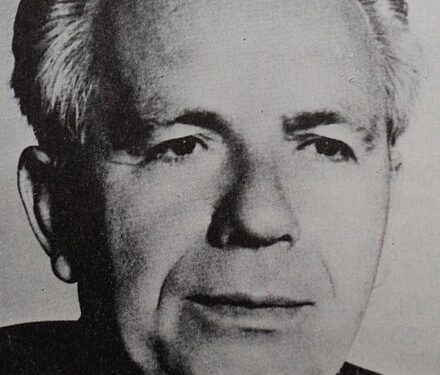
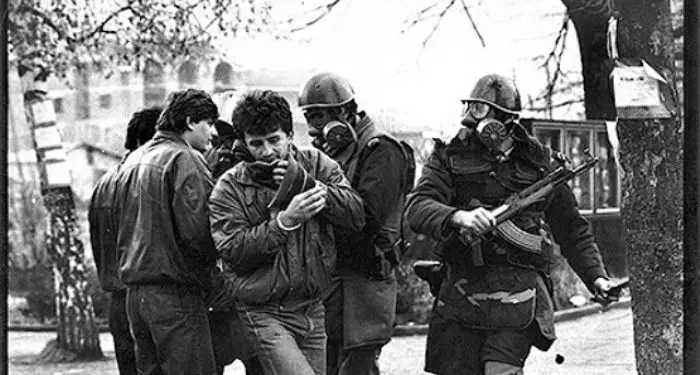



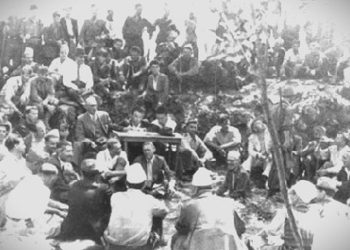
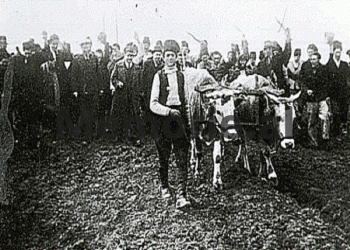
![“They have given her [the permission], but if possible, they should revoke it, as I believe it shouldn’t have been granted. I don’t know what she’s up to now…” / Enver Hoxha’s letter uncovered regarding a martyr’s mother seeking to visit Turkey.](https://memorie.al/wp-content/uploads/2026/01/Dok-1-350x250.jpg)
